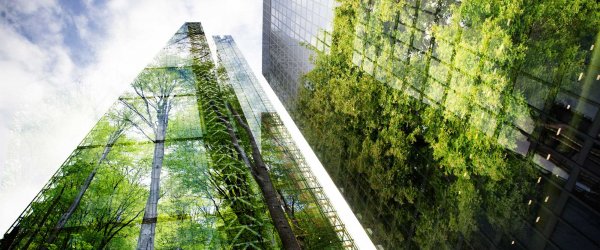GREEN BUILDINGS REMAIN ON RECORD COURSE
-
The investment volume in certified green buildings in Germany in 2022 remained at a very high level of approximately €11.2 billion. Although the volume, like the investment market as a whole, declined slightly in absolute terms compared to the previous year, the relative share of certified assets in the investment market rose to an absolute record level of 30.6%.
-
In a confusing and uncertain situation, the certificate is perceived as a reliable signal for ESG and sustainability. ESG criteria have achieved a very high status in asset management and investment decisions in a short period of time with the new regulatory framework of the Taxonomy and Disclosure Regulation of the EU.
-
However, these regulations still cause uncertainty rather than clarity for many with regard to ESG requirements to be fulfilled. Some questions were answered with a publication from Brussels in December 2022, but much remains open. For example, the social taxonomy was first brought forward in last year's draft and then put on hold. More than a few market participants are missing a clear framework for the classification and recognition of a mutual fund as an Article 8 or 9 fund.
-
Although certificates such as BREEAM, DGNB or LEED are not congruent with the ESG criteria of the taxonomy, they are understood as a significant indication of consideration of ESG criteria.
SUSTAINABILITY IN THE FOCUS OF INVESTORS
-
While in 2021 the relative share of green investments in individual deals was at 25.7%, it rose to 30.6% in 2022.
-
So while in 2021 approximately one in four euros was invested in sustainably certified commercial real estate in Germany, in 2022 one in three euros was invested in a sustainable building.
-
Once again, institutional core investors in particular were very active in the green building investment market segment in 2022.
-
While institutional investors had invested between 50% and 59% of their investment volume in certified green buildings in 2021, this ratio was over 60% in 2022. For insurance companies, the share of green investments even exceeded 72%.
DYNAMIC DEVELOPMENT IN THE A-LOCATIONS
-
In 2022, around 80% of the investment volume of certified green buildings was accounted for by the A-locations.
-
In the three largest investment locations, Berlin, Frankfurt and Munich, the share of sustainable buildings in commercial transactions was over 40% in each case.
